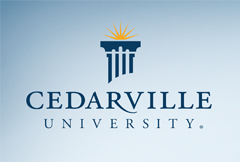Keywords
Ethics, Biblical ethics, organ transplants, organ donor, Christians
Abstract
Upon passing their driver’s license exam every American has the opportunity to become an organ donor. Organ donor status allows immediate retrieval of transplantable organs after death for transplantation into other patients in order to save their lives. Many citizens endorse this action because one donor can save multiple lives by donating viable organs postmortem. However, some people do not endorse organ transplants arguing that it violates the body and that being an organ donor results in a premature declaration of death.
The current standard for cadaveric transplantation is retrieval from heart beating donors. A heart beating donor is brain dead with circulation artificially maintained by a ventilator. The ethical permissibility of this standard is questioned by some Christians. Christians do not believe in a bodily resurrection which provides one basis for permitting organ transplants. Christians also view the body as having intrinsic worth because of the presence of the image of God. When one views bodies as having intrinsic worth organ donation becomes a natural logical conclusion supported by stewardship and loving others (Richards, 2012). While there is nothing inherently wrong with giving of receiving cadaveric organs ethical discussions still remain. Transplantation of cadaveric organs raises ethical questions about the dying process, defining death, and bodily integrity (Ramsey, 2002).
The best way to evaluate these ethical issues is by establishing a Biblical framework through which to consider and evaluate them. This paper will perform that task, ultimately arguing for the support of cadaveric transplants by Christians as an exercise of stewardship practiced in a way that maintains the sanctity of life.
DOI
10.15385/jce.2014.14.1.4
Recommended Citation
Graham, Erica
(2014)
"A Biblical Approach to Cadaveric Organ Transplants,"
CedarEthics: A Journal of Critical Thinking in Bioethics: Vol. 14:
No.
1, Article 4.
DOI: 10.15385/jce.2014.14.1.4
Available at:
https://digitalcommons.cedarville.edu/cedarethics/vol14/iss1/4
Creative Commons License

This work is licensed under a Creative Commons Attribution-Noncommercial-No Derivative Works 4.0 License.
Disclaimer
The CedarCommons repository provides a publication platform for fully open access journals, which means that all articles are available on the Internet to all users immediately upon publication. However, the opinions and sentiments expressed by the authors of articles published in our journals do not necessarily indicate the endorsement or reflect the views of Digital Services, the Centennial Library, or Cedarville University and its employees. The authors are solely responsible for the content of their work. Please address questions to the Digital Services staff.
Copyright
© 2014 Erica Graham. All rights reserved.
